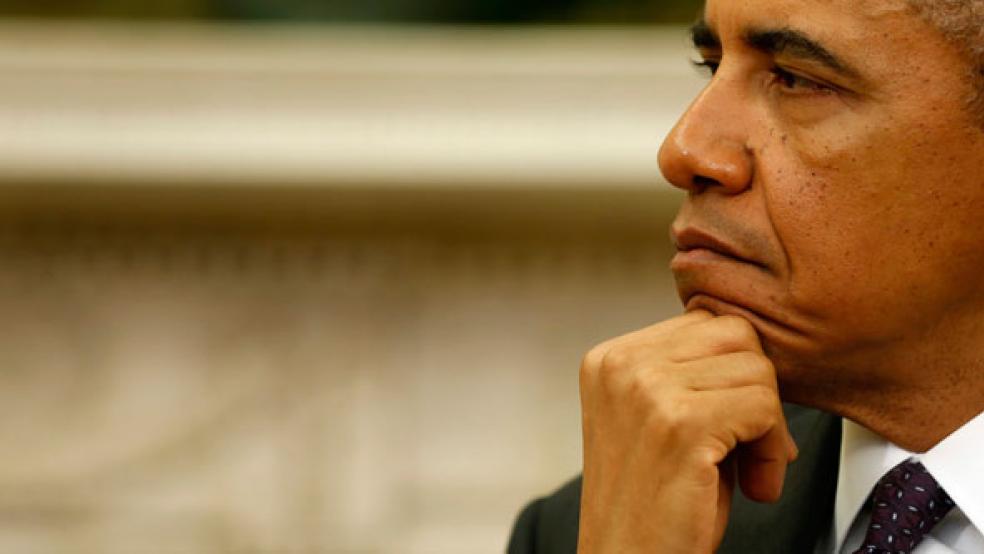Earlier this month, President Obama shook up his foreign policy team, appointing former UN ambassador Susan Rice as national security chief, while naming Samantha Power to replace Rice.

Rice and Power are heavyweights in the liberal foreign policy community. Their selection was widely seen as the president attempting to create a team that would cement his foreign policy legacy in his second term.
The idea of a second term legacy is one borrowed from history. Reagan ended the Cold War in his second term; Clinton came very close to securing a peace deal between Israel and the Palestinians; and George W. Bush secured a legacy in Africa as an anti-HIV pioneer.
The world expects much from Obama partly because he was given the Nobel Peace Prize just months after he was sworn in as president. But to date, Obama’s foreign policy has been dominated by withdrawal, passive engagement and stealth attacks on terrorist targets.
He’s ended the war in Iraq, and is overseeing the final withdrawal from Afghanistan. At the same time, he’s kept an arm’s length from the conflicts in Syria and Libya, offering tacit support to NATO allies.
Obama’s recent attempt to invigorate his foreign policy agenda has largely failed. Forces outside of the president’s control derailed a series of foreign visits. And he’s now facing a trip to Africa, a continent that feels abandoned by a president they celebrate as their own (in Nigeria, Africa’s most populous country, he’s referred to as Our President Obama, even though he’s Kenyan).
Here are the most pressing challenges foreign allies and rivals are presenting for the president, as well as a seemingly unpredictable x-factor that could derail the president’s second term all together.
CHINA : Obama’s recent meeting with Chinese President Xi Jinxing was supposed to mark a turning point in the relationship between the world’s two economic superpowers. But NSA leaker Edward Snowden derailed that agenda by leaking that Chinese institutions were targeted by U.S. cyber forces.
The fact that Snowden has left Hong Kong removes pressure from U.S.-Chinese relations. China’s leadership showed little interest in courting Snowden, and now that he’s gone it allows for both sides to move forward in a positive way.
But the most important part of the U.S.-China relationship is economic. Each needs the other to thrive. Over the next three years, neither is likely to do much to jeopardize that, even as the cyber Cold War rages on.
SYRIA : Events in Syria have threatened to undermine broad foreign policy objectives. The Civil War there dominated the G8 conference last week. Leaders were supposed to be talking trade policy, but instead squared off with Russia over support for Syrian President Assad.
The policy that Syria threatens the most is the anti-interventionist posture the Obama administration has adopted. The lack of American appetite for war is evidenced by the pullbacks in Iraq and Afghanistan, as well as the limited role the United States played in the Libya conflict. With staunch humanitarian interventionists (not the neo-con variety) like Rice and Power at his ear and Assad’s atrocities mounting, the president might be pressured to do more than simply provide weapons.
GERMANY : Obama’s visit to the most important country in Europe was widely considered a dud, especially in light of the rock star treatment he received in 2008 when 200,000 Germans greeted him at Berlin’s victory column. Some estimates have attendance at his speech as low as 5,000 people.
But the role he played in German politics is what should truly embarrass the president. He came to make a grand statement about nuclear reduction, but was used by Chancellor Angela Merkel as a campaign tool. Germans might not like Obama’s policies, but they love him, and Merkel took every chance she could to be photographed standing proudly beside him. The president got little in return.
AFGHANISTAN : The Obama administration’s relationship with the Karzai administration continued to deteriorate this week, with the Afghan president pulling out of peace talks with the Taliban at the last minute. This embarrassed the Americans while erecting yet another obstacle to sustained peace.
At this point, the Obama administration might simply be waiting to leave, putting responsibility for the country squarely on Karzai’s narrow shoulders. He’s already proven to be an ineffective leader with an inadequate military and crumbling infrastructure. At this point, simply leaving next year and letting Karzai deal with the fallout might be the president’s best option.
AFRICA : President Obama has already taken hits for the jaw-dropping cost of his upcoming trip to Africa – a continent rich with in natural resources and potential development. But that cost might be nothing compared to the disappointment Africans are expected to heap on the president when he visits later this week.
The continent that embraced the president now feels scorned by him. He’s largely ignored humanitarian issues there apart from those related security threats to American interest. In advance of the trip, African commentators are rightly pointing out that George W. Bush did more for African than the president ever could. Expect that criticism to grow louder and angrier during Obama’s visit.
EDWARD SNOWDEN: Right now, Edward Snowden is thought to be somewhere in Moscow, waiting for a flight to Ecuador where asylum awaits. Whether he has more documents to leak remains to be seen.
But even if his leaks have dried up, he remains a thorn in the administration’s side. He’s been given a platform to bash Obama domestic and foreign policies, and the White House has no means to fight back. He’s become a net freedom hero, embarrassing a president who campaigned around the world as a champion of open government.





